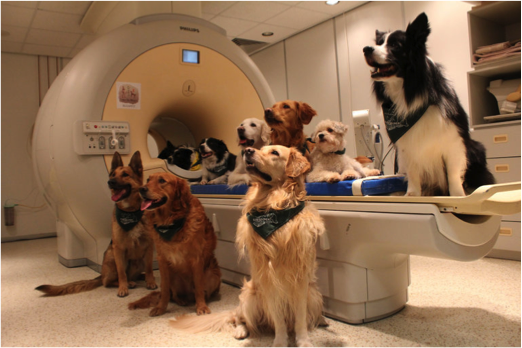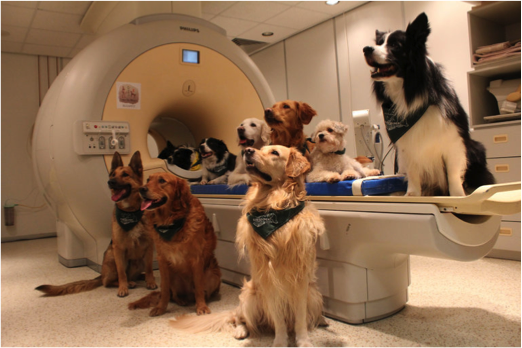Animal Medical Imaging Study Reveals Veterinary Patients are Smarter Than You Think!


Photo Credit: New York TImes
In addition to its diagnostic and treatment value for animals, medical imaging continues to be an increasingly important reseach tool for unearthing new information. The technology we now have at our disposal can expose information to us in ways we only could have dreamed of in the past. For instance, new research based on Magnetic Resonance Imaging (MRI) suggests that your pet, or patient for our Veterinarian clients and readers, might actually know what you are saying!
Last night I was playing with my dog Tucker. Typically, he grabs one of his many toys, in this case his orange monster, carries it to my feet, and then pleads with me to engage in a playful game of fetch. Even after a long day of work, how could I resist a face like this?
 After the sixth time I threw his orange monster, he decided not to retrieve it. In my frustration I asked, "Tucker, where is your orange monster?” To my amazement, he ran over to it and brought it back? Did he actually understand what I was saying? Is Tucker that smart?
After the sixth time I threw his orange monster, he decided not to retrieve it. In my frustration I asked, "Tucker, where is your orange monster?” To my amazement, he ran over to it and brought it back? Did he actually understand what I was saying? Is Tucker that smart?
Well based upon new research findings, perhaps Tucker is that smart and knows exactly what I am saying.
Dr. Atitila Andics has been convincing dogs to enter an MRI machine to scan their brains. The question Dr. Andics has been trying to answer through his animal medical imaging studies is whether or not animals understand the meaning of words or do they simply respond to tone and contextual cues, regardless of what is actually said.
Through the innovative use of medical imaging, Dr. Andics has been able to identify that a dog’s brain responds not just to how a word is said, but to the meaning of the specific word as well.
"We found a left-hemisphere bias for processing meaningful words, independently of intonation; a right auditory brain region for distinguishing intonationally marked and unmarked words; and increased activity in primary reward regions only when both lexical and intonational information were consistent with praise."
While it is known in human speech processing that our brains separetly evaluate tone, emotion, and a word's meaning to create a unified opinion of what is being said, the research suggests that this is something that is not unique to humans.
So it turns out that Dr. Andics is suggesting that perhaps Tucker is that smart and I should be more careful with what I say to him!
For our vet clients and readers, next time a pet owner brings a dog into your veterinary practice, be sure to greet Fido in not in just a pleasant tone, but say something nice as well because he's listening!



